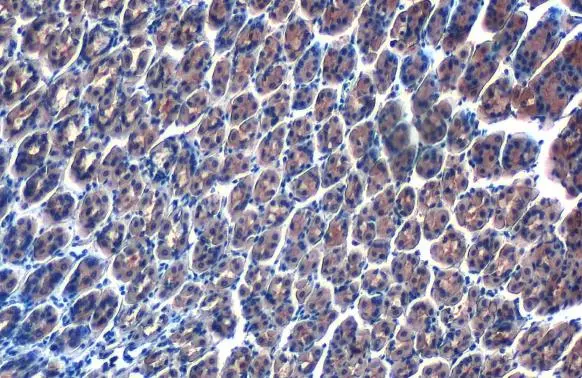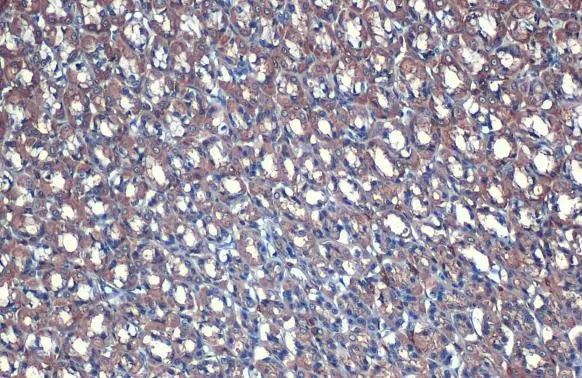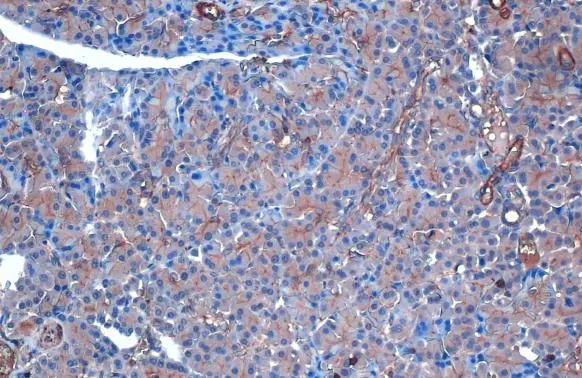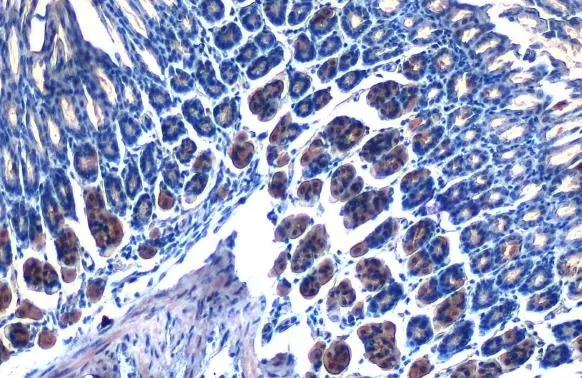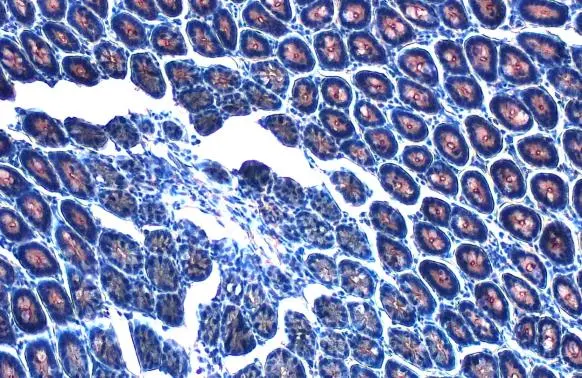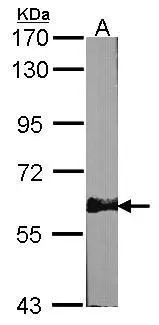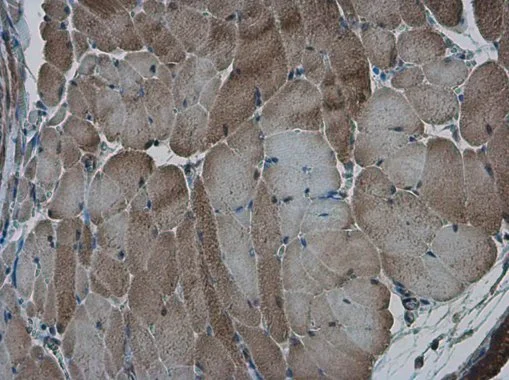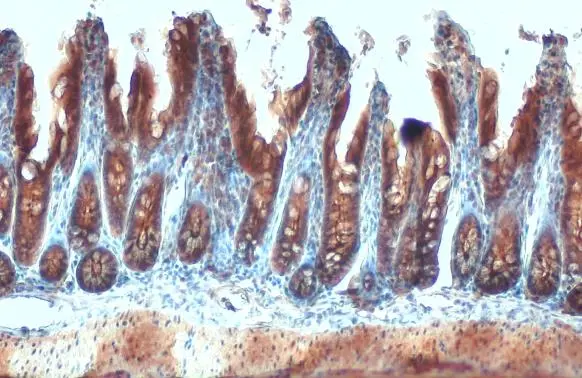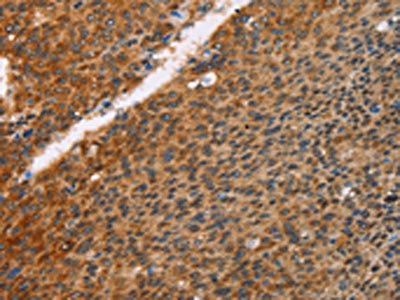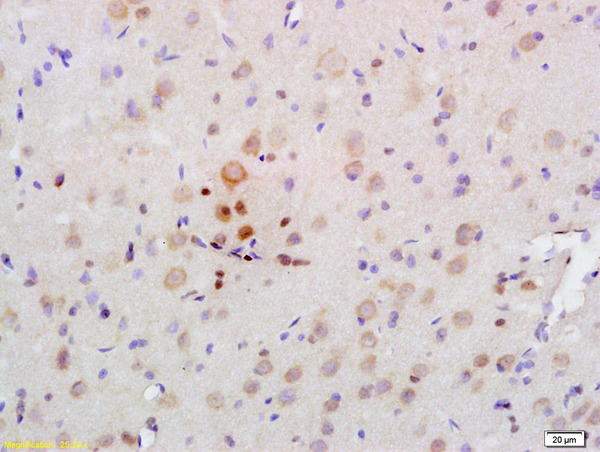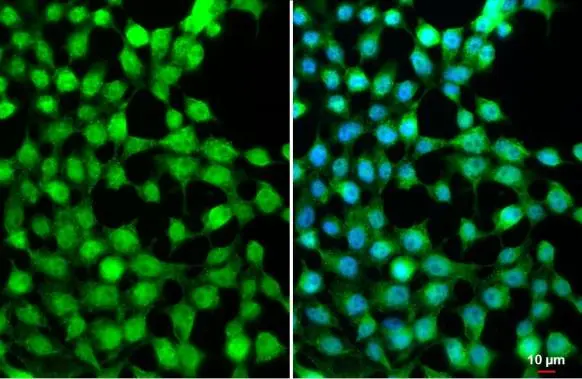
AMPK alpha 2 antibody detects AMPK alpha 2 protein at cytoplasm, nucleus and vesicle by immunofluorescent analysis. Sample: 293T cells were fixed in 4% paraformaldehyde at RT for 15 min. Green: AMPK alpha 2 stained by AMPK alpha 2 antibody (GTX103487) diluted at 1:500. Blue: Fluoroshield with DAPI (GTX30920).
AMPK alpha 2 antibody
GTX103487
ApplicationsImmunoFluorescence, ImmunoPrecipitation, Western Blot, ImmunoCytoChemistry, ImmunoHistoChemistry, ImmunoHistoChemistry Paraffin
Product group Antibodies
ReactivityHuman, Mouse, Rat
TargetPRKAA2
Overview
- SupplierGeneTex
- Product NameAMPK alpha 2 antibody
- Delivery Days Customer9
- Application Supplier NoteWB: 1:500-1:3000. ICC/IF: 1:100-1:1000. IHC-P: 1:100-1:1000. IP: 1:100-1:500. *Optimal dilutions/concentrations should be determined by the researcher.Not tested in other applications.
- ApplicationsImmunoFluorescence, ImmunoPrecipitation, Western Blot, ImmunoCytoChemistry, ImmunoHistoChemistry, ImmunoHistoChemistry Paraffin
- CertificationResearch Use Only
- ClonalityPolyclonal
- Concentration0.47 mg/ml
- ConjugateUnconjugated
- Gene ID5563
- Target namePRKAA2
- Target descriptionprotein kinase AMP-activated catalytic subunit alpha 2
- Target synonymsAMPK, AMPK2, AMPKa2, PRKAA, 5'-AMP-activated protein kinase catalytic subunit alpha-2, 5'-AMP-activated protein kinase, catalytic alpha-2 chain, ACACA kinase, AMPK alpha 2, AMPK subunit alpha-2, AMPK-alpha-2 chain, HMGCR kinase, acetyl-CoA carboxylase kinase, hydroxymethylglutaryl-CoA reductase kinase, protein kinase, AMP-activated, alpha 2 catalytic subunit
- HostRabbit
- IsotypeIgG
- Protein IDP54646
- Protein Name5'-AMP-activated protein kinase catalytic subunit alpha-2
- Scientific DescriptionThe protein encoded by this gene is a catalytic subunit of the AMP-activated protein kinase (AMPK). AMPK is a heterotrimer consisting of an alpha catalytic subunit, and non-catalytic beta and gamma subunits. AMPK is an important energy-sensing enzyme that monitors cellular energy status. In response to cellular metabolic stresses, AMPK is activated, and thus phosphorylates and inactivates acetyl-CoA carboxylase (ACC) and beta-hydroxy beta-methylglutaryl-CoA reductase (HMGCR), key enzymes involved in regulating de novo biosynthesis of fatty acid and cholesterol. Studies of the mouse counterpart suggest that this catalytic subunit may control whole-body insulin sensitivity and is necessary for maintaining myocardial energy homeostasis during ischemia. [provided by RefSeq]
- ReactivityHuman, Mouse, Rat
- Storage Instruction-20°C or -80°C,2°C to 8°C
- UNSPSC41116161

